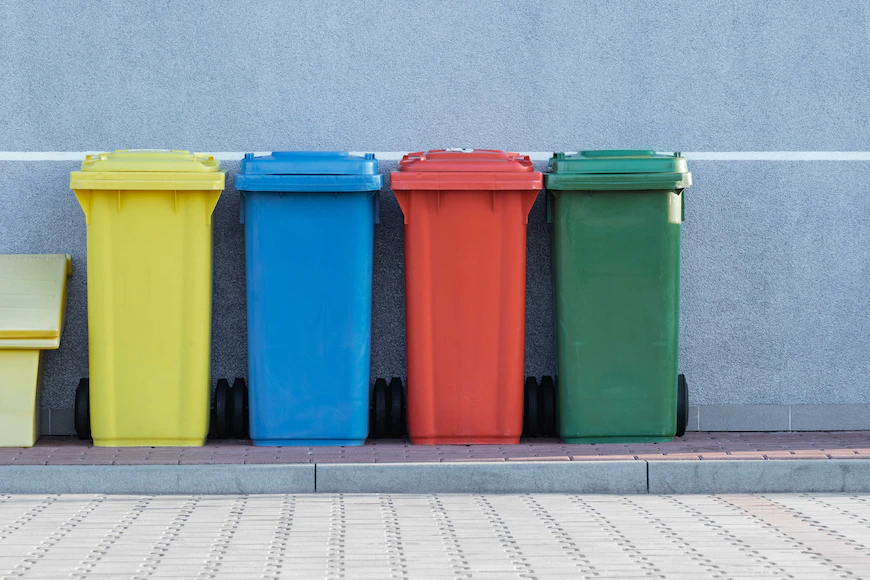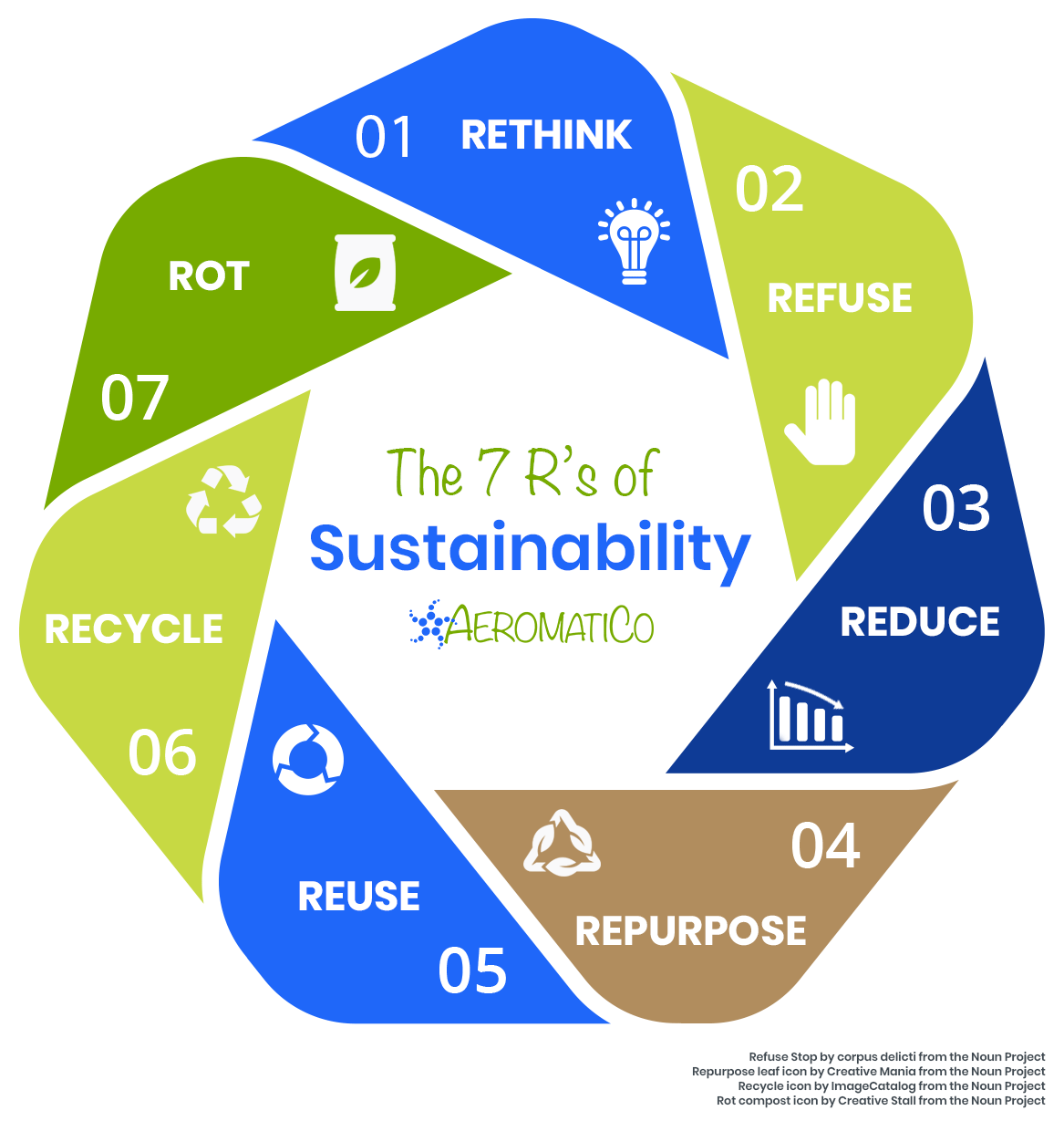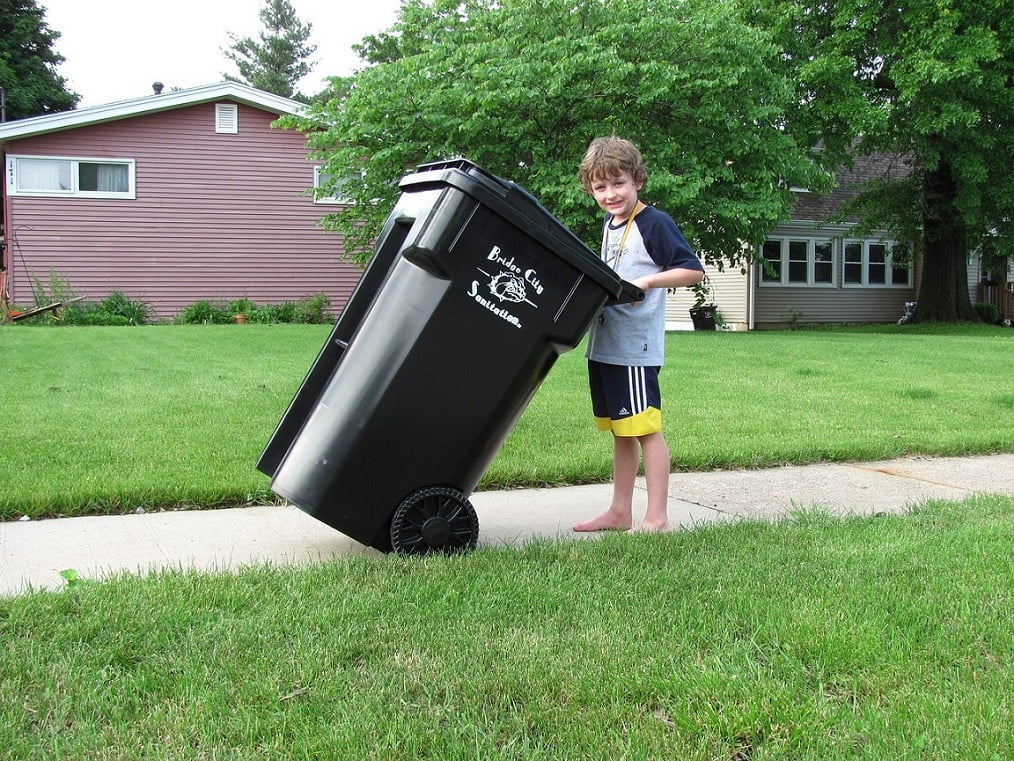The What, How, and Why of Recycling, a chapter of Waste Management
Waste management is a critical area of sustainability. But what does it mean? Generally speaking, waste management refers to the step in a product’s lifecycle when it transfers over from its previous usage by producers or consumers to the final stage, its disposal. In fact, this disposal is managed in various ways, and is extremely important.
Let’s understand its impact and what role recycling plays as a chapter of waste management.
Waste Management is Key
Waste management plays an important role in our modern world because it ensures that waste is processed correctly.
Naturally, this depends on the type of waste that occurs. Here we have a great variety, including agricultural, medical, construction, municipal solid, and industrial waste – among others. This variety of waste types contributes to the complexity of waste management.
There are numerous methods in waste management: composting, incineration, reprocessing, recycling, and more.
Unfortunately, some of these methods bear great risks for wildlife and humans – can you guess which methods are potentially dangerous? The reality is that much waste ends up in the oceans or seas, on the streets, or in landfills. Depending on the type of waste, it may take virtually forever to decompose. In the meantime, there are many side effects like water or air contamination, and even soil erosion.
To illustrate, around 8 million tons of plastic are estimated to end up in oceans each year, according to the World Wildlife Fund. Thus, it’s easy to understand the critical role that waste management plays.
Focusing on Recycling
After beginning to grasp the variety and complexity of waste management, let’s now focus on one chapter of waste management: recycling.
Briefly put, recycling covers several activities in which different types of materials are collected, processed and used as raw materials for further manufacturing of products. In this transformational process, they replace so-called virgin materials used for new products.
Similar to waste management as a whole, recycling is quite diverse and complex. The main types of recycling operations are internal and external recycling. Internal recycling means reusing waste products of a manufacturing process, as is commonly done in the metals industry.
External recycling, on the other hand, refers to reclaiming materials from a used product, typically through a public facility.

Looking at the different types of materials that can be recycled, we can identify the following main ones: Plastic, glass, paper, metal, wood, textile, and electronic. The recycling processes differ depending on the material, and they present different sustainability benefits. For instance, it is estimated that around 17 trees can be saved for every ton of cardboard and paper that is recycled.
The Benefits
As most people are aware, recycling presents many benefits. One advantage is the reduction of solid waste in landfills, which saves cost on the one hand but also improves sustainability by preventing further pollution.
Additionally, as recycling allows using existing materials for the manufacturing of new products, it reduces the need for virgin materials, relieving the strain on scarce natural resources. Other benefits include reduced energy usage and fewer greenhouse gas emissions.
From a societal standpoint, recycling may also be looked at as a mindset shift away from simply discarding used materials. Instead, it embraces the residual value of products and follows a circular economy approach. Which mindset do you have?
The Challenges
The current reality, however, is that recycling is still the “exception” – firstly, it’s not done at the rate that it could be. That is due to several reasons: producers may create products or packaging that is not easily recyclable.
Furthermore, consumers may dispose of their trash incorrectly, preventing the successful recycling. Lastly, there may be insufficient recycling infrastructure or a lack of governmental enforcement.
The result remains the same: on a global scale, only around 19% of waste is recycled or composted.
This number varies across materials and countries, but recycling can and should be done at a higher level.
At the same time, recycling is not the end-all for a sustainable world – it also has limits. Not all materials can be recycled, and there is a limit to the number of times that various materials can be recycled.
Fortunately, there are some highly interesting innovations being explored in the waste management and recycling space. If you are interested to learn about eight technology trends, you can read on here.
What about you?
Ultimately, what did you learn from this article? Perhaps you now have a better idea of the meaning of recycling and its importance, as well as its challenges. But how will this impact your personal life?
Hopefully, you can investigate about recycling practices in your country and city. What kind of recycling is done, and how can you contribute?
External recycling only works if consumers do their part. We need to do our best in dividing the trash we produce, and we need to dispose of it correctly to ensure that the recycling can happen. If you want to learn how to recycle better, read this article for 7 easy tips. To make it even easier, read our 3 final suggestions:
- Understand the waste categorization necessary for your local recycling and sort your trash accordingly.
- Before you throw away anything, take a quick look at the packaging – typically, you will find some hints there as to what kind of material it is.
- Lastly, consider the 7 Rs: rethink, refuse, reduce, repurpose, reuse, recycle, rot. Note that recycling is only step 6, so focus on the first actions beforehand!

Sources
- Waste Management – an overview | ScienceDirect Topics
- Wastes | US EPA
- Modern Waste Management Techniques – A Critical Review (researchgate.net)
- The Importance of Waste Management (myethicalchoice.com)
- 46 Recycling Facts & Statistics (trvst.world)
- Recycling – Plastics | Britannica
- What does ‘recycling’ actually mean? | Waste Dive
- Limits of Recycling | MATSE 81: Materials In Today’s World (psu.edu)
- Innovations in recycling (nationalgeographic.com)
- Top 8 Recycling Technology Trends in 2023 | StartUs Insights (startus-insights.com)
- Recycling – Plastics | Britannica
- 7 Tips to Recycle Better – Earth Day
- The 7 R’s of Sustainability • AeromatiCo
- Types Of Recycling | All Green Electronics Recycling (allgreenrecycling.com)
- What are the Different Types of Recycling? | ISM Waste & Recycling






nice deep dive into recycling, very interesting! unfortunately, my city doesn’t really do that much recycling..
Even if you don’t recycle much in your city, you can start recycling just to get into the habit!
I’m a big advocate of recycling, yet I didn’t really know everything that was now explained in this article. Thanks for the insights, as usual!
Cool!… And thank you for your candid message!
this may sound naive, but why do companies not always create recyclable packaging? this to me seems like an obvious problem that they have almost complete control over..
Probably (and unfortunately) in some cases there is a sort of green washing when talking about packaging. In other cases, the problem is obvious (as you’ve mentioned) but nobody is paying enough attention to it.
Nice tips at the end, a good reminder for me to keep improving and learning myself
Although it’s a company/city/regional effort, it’s good to have these issues in mind
Recycling is great, but what about reducing waste in the first place? #LessIsMore
Recycling is great, but can we talk about composting too? Lets make dirt sexy!
Recycling is great, but what about the energy consumption and carbon emissions during the process? 🌍♻️
Recycling is great, but lets not forget about reducing waste in the first place!
Recycling is great, but what about reusing? Lets get creative and find new ways to reduce waste!
Recycling is great, but can we also talk about composting? Its natures recycling system!
Yeah, sure, lets talk about composting. But lets not forget that recycling has a much larger impact on reducing waste and conserving resources. Its great that nature has its system, but human efforts are needed to make a real difference.
Youre right, reducing waste is crucial! Recycling alone cant solve the problem. We should focus on consuming less, reusing items, and supporting sustainable alternatives. Only then can we truly make a difference.
Recycling is great, but what if we focused more on reducing waste altogether?
Recycling is great, but what about all the energy it takes to recycle? Is it really worth it?
Yes, recycling requires energy, but its a small price to pay for preserving our planet. The benefits of reducing waste, conserving resources, and minimizing pollution far outweigh the energy used. Lets focus on finding ways to make recycling more efficient instead of dismissing its importance.
Recycling is great, but what about the energy and resources used in the process?
While its true that recycling requires energy and resources, its still a crucial step towards reducing waste and conserving valuable materials. We need to focus on improving recycling technologies and finding alternative energy sources, rather than dismissing the entire process. Every small effort counts.
I never knew recycling could be so fascinating! Who knew trash could be so interesting? 🚮♻️